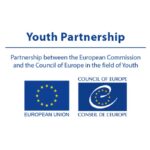Study New Forms of Youth Political Participation
Year of production: 2023
New forms of political participation (169)
The study is based on the findings from a survey which ran between November and December 2021, aiming to contribute to existing knowledge and discussions on youth participation across Council of Europe member states, while elaborating on issues such as the common and most interesting topics for young people, the organisations and activities that they prefer, and their involvement in the decision-making processes.
The survey report consists of three parts. The introductory part lays out the research methodology and demographic composition of the survey’s participants. The second part displays the survey’s findings through the analysis of various topics, including the ways and tools that young people use to access information at the European level, respondents’ participation in conventional political processes (particularly in political parties), their interest in social and political issues, young people’s membership, engagement level and frequency of engagement in the organisations, including political parties, social and political organisations, youth organisations and professional organisations, etc. The final part of the report brings together the main conclusions and areas for further study.
Key findings from the Study:
- Young people participate in conventional political processes at a lower rate than older cohorts. One out of every 10 young people (11% of respondents) stated that they are engaged with political parties as members or volunteers, of which only 5% are members.
34% of the respondents stated that they voted in local, national or European elections in the last 12 months. - There are regional differences regarding participation in political parties. Young people in western Europe and northern Europe (13%), and South-East Europe (12%) are most involved with political parties, followed by southern Europe (10%), and central Europe (9%). Young people in eastern Europe are the least involved in political parties (8%).
- 39% of the respondents state that they feel completely confident (15%) and highly confident (23%), respectively, in their ability to participate in political or social issues. One out of every four young people (27%) feel that they are not capable of participating in political and social issues.
- Young people acquire information about social and political issues through digital channels (internet news – 72% and social media – 65%). In addition to internet sources, the third most popular source is television (34%).
- Among the social media platforms, respondents stated that they use mostly Instagram. (44%), YouTube (44%), and Facebook (41%), which have prominent visual communication. Young people’s duration of participation is often limited to within 12 months. The highest duration is in sports clubs, followed by social and political organisations. In terms of frequency of participation, young people’s attendance concentrates on the range from “1-3 times a week” to “once a week”.
- The most popular online activity among respondents is “following different organisations or movements on social media” (37%). Among the respondents, there are no significant genderrelated differences except for following news online (42% of young women and 35% of young men).
- In relation to offline activities, 34% of respondents voted in the elections, 15% took part in a public consultation, while 13% have contacted a politician or a civil servant in the last 12 months.





